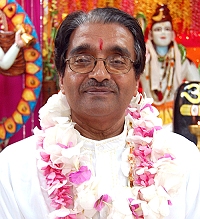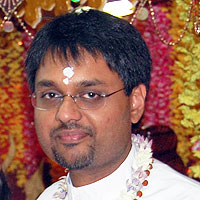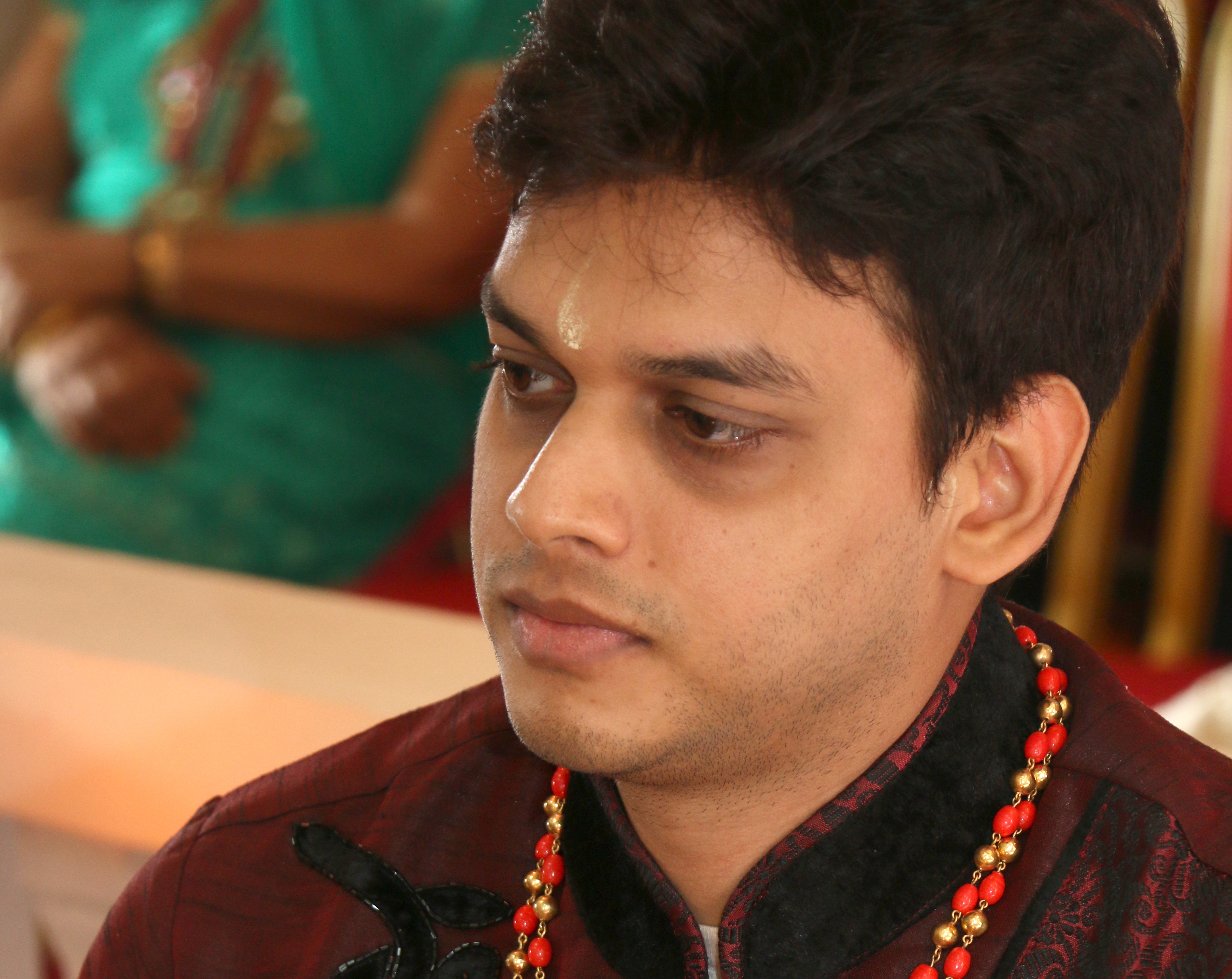Paramacharya of Swaha, Pt. Hardeo Persad
The human form is a gift that we have received from the Divine. In Chapter 13 of the Bhagavad Gita, Shree Krishna, in his conversation with Arjuna, reveals who and what we are, in terms of the body, which he calls the ‘field’. In this field of the body, we plant various seeds in the form of our actions. Tulsidasji also refers to the body as a field in the Raamcharitramaanas and other writings. He uses the metaphor of the mind as a farmer, who basically plants two seeds: seeds of sin or virtue.
In the Bhagavad Gita, Shree Krishna also refers to the soul as the ‘indweller’ or ‘knower of the field’. Moreover, he says that the indweller is Himself: “I am the soul in each individual.” Therefore, each individual is an embodiment of divinity. Often, we seek God as a being outside of ourselves, but He is everywhere, in every atom of creation. The wise ones, He explains, are those who understand the difference between the body and soul.The Mahavaakyas (great scriptural teachings) have declared: Aham Brahmasmi; Tat Twam Asi; Chidananda Rupaha, Shivoham, Shivoham and Ishwar Ans, Jeeva Avinashi. They all urge us to seek and identify with the divine reality within ourselves.
In this world of duality and imperfection, we are disconnected from God, our true nature, because of our attitudes and practices. There is a divine flame inside us, but it is concealed by various impurities. There exists not a physical but a spiritual distancing between the individual soul and the Supreme Soul. In our journey to reconnect with our true nature, we must seek that divine light within and realise our oneness with it. The sages say, in order to receive the darshan (blessing) of seeing the Lord, we must open the eyes of the mind and the heart. We must clean its impurities. We must realise the difference between the real and the unreal. The real is unchangeable and the unreal, changeable. The world is transient; seek, instead, the one, ultimate supreme reality, Parameshwara, the indweller. How can we achieve this realisation when there are other duties and work to perform? “Work is worship; duty is God,” as the wise ones say. Let us make every act an offering to the Divine. Shree Krishna reminds us, “Think of me constantly. Be devoted to Me. Worship Me. Make obeisance to Me. Having dedicated your mind and body to Me, you will certainly come to Me.” (Ch. 9, v. 34)
Shree Krishna explains the nature of the body, its impurities, why we should treasure it, and make use of it as a vehicle to reach the highest state of realisation. The body, and all of creation, consists of five elements, panch mahabhuta: earth (prithvi), water (jal), fire (tejas or agni), wind (vaayu) and ether (akash). Through a quintuplication process of these elements (panchikaran), all creation is formed. In the individual, there is also the ego (ahamkaar), the intellect (buddhi) and the unmanifest energy (mool prakriti). The body also has ten senses: five senses of perception or gyaan indriyas (sight, sound, smell, taste and touch); five organs of action or karma indriyas (hands, feet, tongue, organs of excretion and reproduction) as well as the mind (man). There are also 11 life principles or rudra that exist in every individual. These life principles are personified as manifestations of the Divine.
We experience many states and emotions in this human body: desire and aversion (icchaa and dvesha) as well as pain and happiness (sukh and dukh). We live in this world of opposites and we react to various stimuli, which mire us further in duality and materialism. We must remember that the human form is a gift from the Divine. It is the highest form in creation and should be used as a vehicle for self realisation. With the right practices and attitudes, we can rise beyond the world of duality and realise that we are the knower of the field.
(An extract from an online service.)



